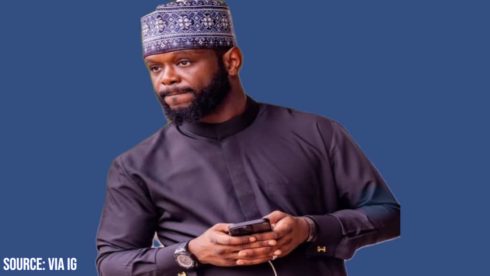Seyi Tinubu, son of President Bola Tinubu has been rejected by the Coalition of Lagos Indigenous Youths as a candidate for the 2027 governorship race. The Coalition of Lagos Indigenous Youths (CLYI) has vehemently opposed this move, citing their dedication to safeguarding the political and cultural interests of native Lagosians. According to the group, leadership in Lagos must remain in the hands of its indigenous population to preserve its unique identity and heritage. This rejection highlights a brewing conflict over governance and the role of non-indigenes in Lagos politics.
This controversy was triggered by the Coalition of Nigerian Youth Leaders’ (CONYL) recent endorsement of Seyi Tinubu. Representing youth organizations from across Nigeria’s six geopolitical zones, CONYL has described Seyi as a visionary leader capable of driving Lagos’s development forward. However, this endorsement has been met with widespread criticism from Lagos-based groups who prioritize indigenous representation in the state’s governance. This disagreement underscores the rising tension between national political ambitions and local identity preservation in Nigeria’s commercial capital.
CONYL Endorses Seyi Tinubu for 2027 Lagos Governorship
On Tuesday, the Coalition of Nigerian Youth Leaders (CONYL) publicly declared its endorsement of Seyi Tinubu for the 2027 Lagos gubernatorial race. According to a statement signed by its leadership, including President General Comrade Goodluck Ibem and Secretary Comrade Junard Abubakar, the group praised Seyi’s leadership potential and vision for development.
The endorsement followed an extensive meeting of CONYL leaders held in Owerri, Imo State. The statement highlighted Seyi Tinubu’s influence as a youth ambassador and philanthropist, asserting that his governance could bring significant progress to Lagos State. This move, however, has drawn sharp criticism from local groups in Lagos.
Lagos Youths Insist on Indigenous Representation
In response to CONYL’s endorsement, the Coalition of Lagos Indigenous Youths (CLYI) issued a strongly worded statement rejecting Seyi Tinubu’s candidacy. Abdul Kareem Whyte, who signed the statement on behalf of the group, emphasized that Lagos State remains a bastion of indigenous pride and heritage, and as such, leadership must remain within the purview of native Lagosians.
The group argued that allowing non-indigenous individuals to govern Lagos would erode its cultural and political identity. CLYI urged Seyi Tinubu to seek political opportunities in Osun State, where his family reportedly has ancestral ties, or elsewhere, but not in Lagos.
Political Implications of the Endorsement Row
The endorsement of Seyi Tinubu has ignited political debates, with analysts speculating on its impact on Lagos politics. The rejection by CLYI underscores the sensitive balance between indigenous rights and the broader political ambitions of prominent figures.
This development could complicate the Tinubu family’s political influence in Lagos, as indigenous groups consolidate efforts to prevent external control. Observers note that this tension may reshape political alliances in the lead-up to the 2027 elections.
The Role of Indigenous Movements in Lagos Politics
Indigenous movements in Lagos State have historically played a pivotal role in safeguarding local interests. The CLYI’s stance reflects broader concerns among native Lagosians about preserving their political autonomy amidst growing external influences.
Experts highlight that such movements often arise from long-standing grievances about perceived marginalization. By rejecting Seyi Tinubu’s candidacy, the CLYI reinforces its demand for leaders who prioritize the unique socio-cultural and economic interests of Lagosians.
Future Prospects for Lagos Governance
As the 2027 elections approach, the debate surrounding Seyi Tinubu’s candidacy signals potential shifts in Lagos’s political landscape. While CONYL’s endorsement portrays him as a youth-focused leader, indigenous groups like CLYI remain steadfast in their opposition.
Political observers predict that the next governor of Lagos will need to navigate these complexities, balancing inclusivity with respect for indigenous rights. Whether this episode leads to reconciliation or further polarization will significantly influence the state’s governance trajectory.
Table of Contents
Discover more from OGM News NG
Subscribe to get the latest posts sent to your email.














